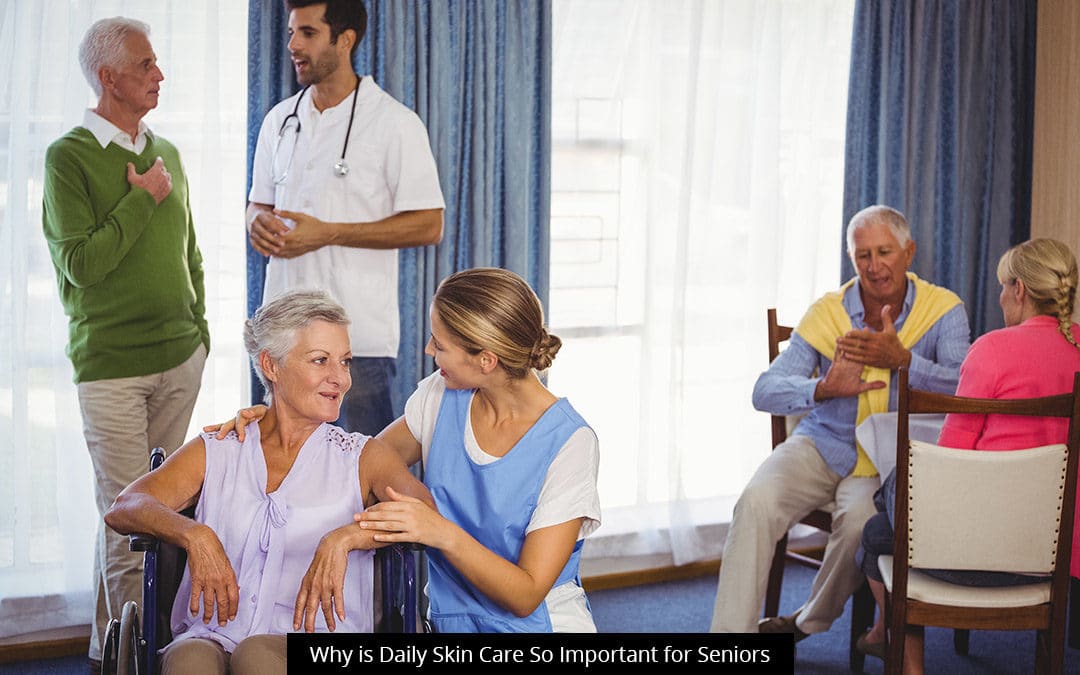The skin is our largest organ and is also the most vulnerable to exposure and threats from our external environment. For this reason there are an array of factors that can impact the way your skin ages, so it is critical to take good care of your skin to help prevent damage and deterioration. Some elements that can cause the skin to age prematurely, include:
- Sun, wind, and weather
- Poor nutrition
- Lack of exercise
- Bad habits like smoking and excessive alcohol consumption
- Genetics
- Neglectful skin care
What Natural Effects Does Aging Have On Skin?
While there are some things you can do protect your skin to keep it healthy and supple, there are also other natural changes to the skin over time that cannot be avoided. Some of these organic tolls that time takes include the skin becoming:
- Thinner
- Looser
- Rougher
- Wrinkled
- Discoloured
- More fragile
- More easily bruised
- More susceptible to bed sores
- More vulnerable to infection and rashes
- Increasingly dry
- At an increased risk of skin cancer
- Slower to heal
It is plain to see there are a multitude of concerns to consider which is why it is so important for seniors to be diligent with daily skin care.
What Are The Most Common Skin Problems For Seniors?
Neglecting proper skin care practices put older adults at a higher risk for several skin conditions, such as:
- Chronic dry skin & dermatitis
- Skin growths and tags
- Infections
- Senile Purpura
Chronic Dry Skin & Dermatitis
Dermatitis can occur at any age, and perpetually dry and itchy skin is common condition often found in older adults. Chronic dry skin may seem like a minor ailment but as it becomes more severe and symptoms worsen, dermatitis can lead to infection and a variety of other more serious conditions that can compromise overall health.
Skin Growths & Tags
Skin tags are small growths or flaps that appear on the surface of the skin. In most cases these growths are not dangerous but should be monitored as they sometimes can be cancerous. It is good idea to have skin growths assessed by a doctor or healthcare professional if there is any concern, as it is always better to be safe than sorry.
Infections
Bacterial and parasitic infections can present serious problems for the skin and overall health of not addressed in a timely fashion. Any rashes, swelling, or increased temperatures on any areas of the skin should be checked out immediately.
Senile Purpura
While some skin discolouration occurs naturally with age, larger patches of purple or reddish skin is a symptom of Senile Purpura. These patches are sometimes referred to as blood spots or skin hemorrhages. Senile Purpura is the result of increased fragility of the blood vessels and damaged connective tissue in the skin. While the condition itself is not dangerous, it may be indication of a more serious underlying issue.
Daily Skin Care Tips For Seniors
There are numerous daily practices older adults can engage in to protect the skin from damage and premature aging. Some helpful skin care recommendations for seniors include:
- Stay hydrated by drinking plenty of water throughout the day
- Eat a nutritious diet rich in vitamins, minerals & antioxidants
- Get regular exercise to keep the skin tighter and more supple
- Keep the skin clean but avoid excessive washing which dries out the skin
- Use mild soaps with organic ingredients
- Moisturize after a shower or bath
- Avoid prolonged direct exposure to the sun
- Avoid bad habits like smoking and alcohol abuse
- Use a humidifier in the winter
- Get regular checkups by a dermatologist
Good hydration is one of the best things you can do for your skin, so drinking lots of water is the foundation for an effective daily skin care routine.




